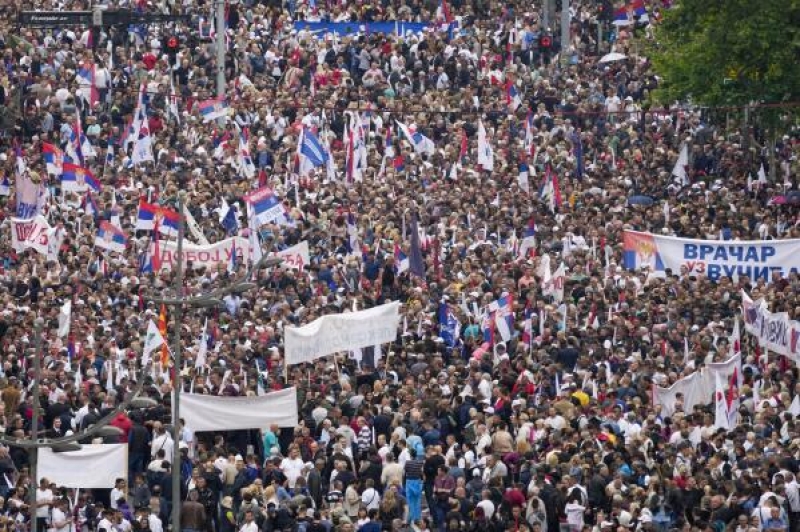- Israel Strikes Tehran with US Support Amid Nuclear Tensions |
- India Sees 9% Drop in Foreign Tourists as Bangladesh Visits Plunge |
- Dhaka Urges Restraint in Pakistan-Afghan War |
- Guterres Urges Action on Safe Migration Pact |
- OpenAI Raises $110B in Amazon-Led Funding |
Serbia set to get new government amid protests

Serbia is likely to get a new government Wednesday led by a political novice that closely resembles the previous administration, which was brought down after months of student-led anti-corruption protests.
The Balkan nation has been in political turmoil since former Prime Minister Milos Vucevic and other senior officials resigned in January, amid marathon protests sparked by a railway station disaster that left 16 people dead.
"Serbia is tired of divisions and blockades," said Prime Minister-designate Dr Djuro Macut, an endocrinologist, while presenting the proposed cabinet in parliament.
It includes 20 members of the previous cabinet - among them the heavyweight finance, interior and defence ministers.
"You look more like a second-hand government than a new one," said Aleksandar Jovanovic, MP from the opposition Ecological Uprising movement, during the debate.
The opposition said the reshuffle would only deepen the crisis.
They particularly criticised the nomination for education minister - a hot topic after months of student-led demonstrations and teacher strikes - which has been offered to a political analyst close to the ruling party.
The Ministry of Information is also to be led by Boris Bratina, well known for his opposition to Serbia's joining the European Union, even burning the EU flag during a public event in 2009.
"Politically and ideologically, this proposed government appears to be more of a continuation than a break from the previous one," political analyst Bojan Klacar told AFP.
The premier-designate has no political experience, other than having taken part in the early stages of a new pro-government political movement launched by President Aleksandar Vucic on Saturday.
The movement, which has not yet been named, was launched during a rally this weekend organised by Vucic in Belgrade, attended by 55,000 people according to an independent counting group - while the president claimed on stage that 145,000 people turned up.
Beyond the debate over numbers, "the participation, energy, and message weren't as strong as he had hoped," Klacar told AFP, adding that nevertheless, Vucic's political circle have managed to stabilise their position to some extent, reports BSS.
"They had been on the defensive for a long time, but this rally helped them reclaim political ground," he said, after months of protests over the Novi Sad railway station tragedy on November 1.

